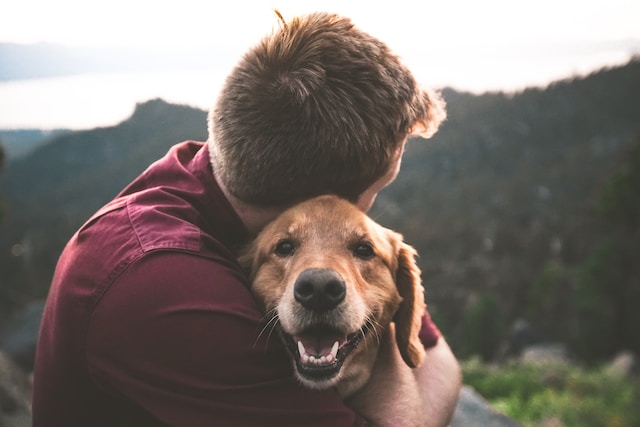Dogs are amazing animals and adopting a dog is an exciting time for any family. The bond you can develop with them is definitely one to look forward to. It is usually a great experience for the new owners and gives the dog a second chance at a happy home. But often there are bumps along the way. It can take months or even a year for you and your dog to fully adjust to one another and to the new life routine you have to put in place. Here are the 8 most common issues new owners encounter when adopting a dog and how to avoid them.
2. Not doing enough research about the breed
3. Only considering the current stage of the dog
4. Not listening to warnings from the rescue
5. Assuming the rescue knows best
6. Not planning for the future
7. Assuming it is going to be easy

1. Rushing The Process
You have decided you would like a dog in your life. Whether you have had a dog before or are brand new to dog ownership adopting a dog without doing a full check of the pros and cons this decision will make in your life will quickly have negative consequences. A dog will change most aspects of your current lifestyle. Some of these changes will be minor but they can build up. So it is best to be aware of all changes in advance.
For example, how much earlier will you have to get up every day to care for your dog before going to work. Will you always have time for this? Do you have to travel for work? Who will care for the dog when you are away? A dog needs to be walked every day? Will I want to do this during the cold winter months too after a long day of work?
2. Not Doing Enough Research About The Breed
You might have your heart set on a certain breed. While pure breeds aren’t always available in rescue it does happen. But you need to ignore the looks of the dog and really look into what ownership of that particular breed really means. During the height of Game of Thrones popularity huskies became a very popular breed to own. Unfortunately the majority of owners did not consider the requirements of the breed and a large number of these dogs ended up in rescues.
Another issue to consider is the overall health of a breed. My best advice here is to speak to the people who deal with sick animals daily. Ask your local vet or vet nurse which dog breeds they would not own due to health reasons. There are two ways to look at this information. If you are buying a dog, definitely avoid the ones the vets advise against. But if you are getting a rescue and you do your homework and know you can afford the extra medical costs and are willing to care for the needs of the breed then it does not have to be a reason against getting the dog.
3. Only Considering The Current Stage Of The Dog
A lot of people contact rescue groups looking for a puppy. There are a few reasons for this. They think it is the best way to bond with a dog for life. They may worry about the unknown history of an older dog. Or simply they love that cute stage. But there are many good reasons to look at the other dogs in a rescue.
Dogs in the age 2 to 5 bracket will often have grown out of the destructive puppy behaviour stage. You will also be able to tell their personality better and they will hopefully come already toilet trained. An older dog up to senior age will generally suit an older household. Often rescues do not rehome dogs over the age of 2 to houses with small children. I know my fathers senior dog would not be happy living with the grandchildren full time! But his older nature suits my father perfectly.
Go back to your pros and cons list and write them down against all age groups of dogs to see which you think would suit you best. And remember whatever stage they are at now this will change.

4. Not Listening To Warnings From The Rescue
This may seem obvious to some but as soon as you see the dog of your dreams and have your heart set on taking it home it is normal to lose a bit of reason. The rescue's main aim is to pair the right dog with the right home so that it works out for the lifetime of the animal. A mistake some people make, either out of error or a misguided judgement, is to not take the rescues warnings or recommendations seriously.
For example, if the rescue says a dog would not suit a home with kids but you saw the dog interacting with a child and could see no issues. People have lied on application forms and claimed no children lived at a house when it was not true. Another example is if the potential owner was told the dog is not suitable to be left alone all day. Some people can think what's the harm, but the dog may become destructive or very stressed in that situation.
5. Assuming The Rescue Knows Best
In a perfect world all rescues would be equal and would have the health and well being in the heart of what they do but sadly this will not always be the case. Some rescues may be more interested in moving a dog on quickly. Don’t be afraid to ask as many questions as required about the dog's history. This may not always be known by the rescue but the dog should at least be assessed by a knowledgeable person to figure out what situation will work best for them going forward. If you are not getting the answers you require or feel your queries are being ignored maybe it would be best to contact a different rescue instead.
6. Not Planning For The Future
No matter what your current stage of life, more changes will be coming. Before you take home your new dog you should sit down and think what way the dog will fit into each stage. Below are a few of the most common changes to expect.
- Moving house - accommodation is a big issue at the moment. If you are renting could you find another property that will take pets?
- Having kids - I always found it strange to hear someone would rehome their pet because they had a child but since having had children I can see the issues that could arise. A close friend of mine did have to rehome her dog. It was the sweetest dog ever but it did not like living with the child. It would growl and become very uncomfortable when in a room with it. Bearing in mind this dog was actually very good with kids but it just could not deal with living with one full time. It was not an easy decision but the dog was much happier in an adult only home.
- Getting sick - An illness or accident can happen any time. What happens to your dog if you were admitted to hospital for a period of time? Plan for this in advance, ask a friend or family member to be your pets back up guardian in case of emergency. This is especially important if you live alone.
- Dying - It is going to happen to all of us and we don’t know when. Similar to if you get sick, it is best to have an emergency contact for your pet in case of your death. If you have a will you should include what should happen to your pets. You will want your dog to get settled into the best home possible so it is best to have something in writing so your wishes will be respected.
7. Assuming It Is Going To Be Easy
Taking a new dog into your home will always be a new experience and it will not always be plain sailing. If you have owned a pet before then you have some knowledge of what can happen but you have never owned this exact dog before. Their behaviour and habits maybe nothing like you have had before even if they are the same breed. Allow for an adjustment period and expect it to take time for you both to adjust to the change.
This is even more important for first time dog owners. It can be similar to bringing home a newborn from the hospital. Everything about your life will change, most for the positive but when dealing with bad or difficult behaviour it is normal to only focus on the negatives. The good news is there is help available if you are finding it very hard to adjust. Be honest with the rescue if you are struggling with any aspects of dog ownership. They can advise how to deal with it. They may be able to give solutions or point you in the direction of someone else who can help you.
8. Not Considering All Costs
Keeping an animal is not cheap and you have no idea how soon or how often a massive pet bill will come in. This is one of the most important areas you need to plan for in advance before getting your dog. As soon as you sign the adoption papers this dog is now your responsibility. Food is the obvious expense. But the dog will need vet treatment, and even the yearly vaccinations can be costly. What if they get sick and require daily medication?
Depending on the breed they may need regular grooming which is also not cheap. If you work full time will the dog need to attend a doggy day care or use a dog walker? And what happens when you go on holiday? Do you have someone to mind the dog or will you be paying for dog boarding?
My father adopted a pup from a dog rescue a number of years ago. This was a reputable well known rescue and the dog was in good health from what they could tell. A day after we took him home he got very sick. I had to take him into the emergency vets at 2am on a bank holiday weekend. It turned out that he had contracted parvo. There is a 50/50 chance of survival. So his new dog was now going to land him with a very large vet bill before he had even settled on his name and there was no guarantee he would survive. Thankfully he did and my father was able to afford the bill but it could have been much worse.
It will be difficult to plan for all scenarios but by doing your research and knowing what potential issues you may face can make for a much happier adoption. We definitely advise working on your pros and cons list even before you fill in the first adoption application form. But if you are coming across one of these issues when you already have the dog don’t be afraid to reach out and ask for help and advice from the rescue.
